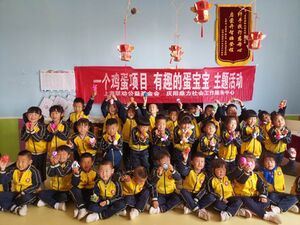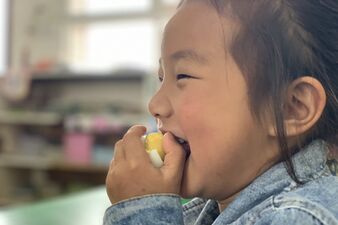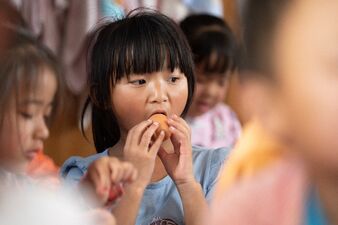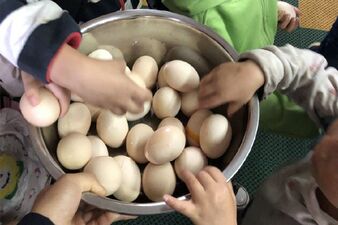An egg a day for kids in rural China
| Organization | Shanghai United Foundation |
|---|---|
| Region | China |
| Website | Website |
| N/A | |
| N/A | |
| ProjectLeader | Song Xitong |
| Linked Problems & Solutions
|
|---|
The "One Egg" project, launched by Shanghai Lianquan Public Welfare Foundation (SUF), aims to improve the health of children in remote and poor areas in China by having children aged 3-12 eat one egg a day. The SUF works with local nonprofit organizations and rural schools on the program. The "One Egg" project has been running for 10 years. According to statistics at the end of 2020, the program supported 326 schools, totaling 246,257 teachers and students, and consumed 24,246,088 eggs.
Challenge
According to the survey, 31.06% of rural children in China are mildly malnourished, while 16.7% are moderately malnourished. Nearly 12% of the children surveyed had growth retardation, 9% had low weight, and 12 out of every 100 children were 6-15cm shorter than their urban counterparts. In addition to physical retardation, malnutrition affects their intellectual and cognitive development, impeding their opportunities for academic success and, as a result, upward mobility.
Long-Term Impact
After 10 years of development, the "One Egg" project benefited from 806 teachers and students in the original 6 schools to 27,079 teachers and students in 167 schools by the end of 2020, greatly improving the health status of children in poor areas. Local parents also encourage their children to go to school every day because they can eat an egg at school. Therefore, the project can further improve the local school attendance rate and promote the development of rural education.
References
- http://www.lianquan.org.cn
- http://www.youtube.com/v/kvb05axlzps
- http://magazine.caing.com/2011/cw439/
- http://v.qq.com/page/s/6/b/s0146zcmx6b.html
Additional Documentation
https://www.globalgiving.org//pfil/54086/projdoc.pdf
Project Gallery










